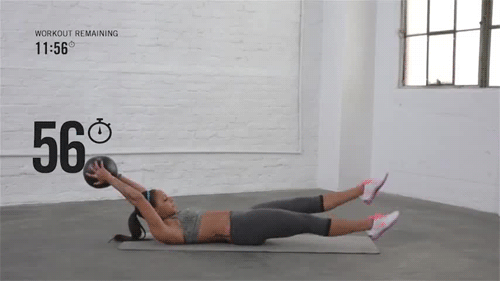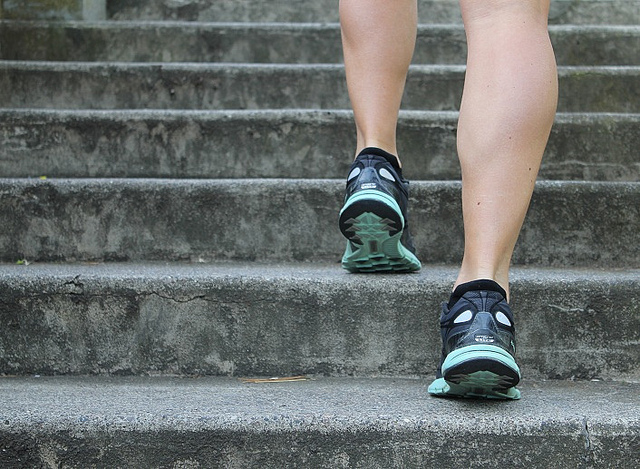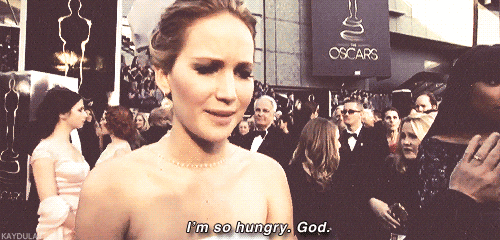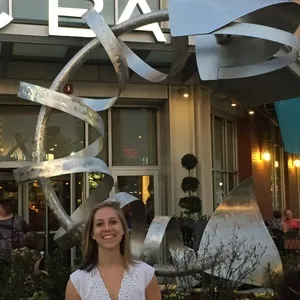For me, there are only two states of being after a workout. I am either starving to the point of no return or I am completely turned off by the idea of food. A lot of times, it’s during my rest days that I actually feel hungrier and typically eat more. Sound familiar?
The major reason this happens is because our bodies’ hormones and blood flow actually can suppress our appetite when and after we workout, leaving us feeling less hungry (or fuller faster) when we do eat.
You might be thinking that you tend to always be hungry after your workouts and that this doesn’t pertain to you. That sometimes happens to me too, and I will say not only does the type of exercise you do affect your appetite but there is also the individualistic factor of genetic differences.
The type of exercise you perform is a strong indicator of how hungry you’ll feel after it, and even though it may sound like it should be the other way around, the more intense the workout the more suppressed your appetite will be.
What does interval training have to do with it?

GIF courtesy of youcandoitblog.com
For those more into interval training, this is the type of workout that will suppress your appetite the most afterwards. In a study conducted by University of Western Australia, men who completed 30 minutes of intense exercise intervals ate up to 170 calories less about an hour after working out compared to those who performed moderate exercises for the same amount of time. The harder you go and the more intervals you perform, the less likely you’ll be hungry compared to if you perform moderate, steady exercise.
Okay, so how could a workout more intense—where you are probably burning more calories—make you feel less hungry? I know it sounds like it doesn’t make sense, because if you burn more calories wouldn’t that make your body crave more? However, many researchers believe intervals reduce your levels of the hunger stimulating hormone, ghrelin, while at the same time increasing levels of blood lactate and blood glucose, both of which could suppress short term food intake. Thus, the more interval training you do during your training days, the more you’ll be turned off to eat a lot afterwards, as your body’s levels are causing your appetite to be suppressed.
How does your blood flow come into play?

Photo courtesy of Fit Approach on Flickr
Another reason you might not feel as hungry on days you workout is because when you exercise, your blood is flowing to other major areas of your body, not to your stomach. As your blood flow is stressing the flow to your legs, heart and lungs typically during your workout, it neglects your stomach which means there is less blood flow for digestion. This then causes our bodies to steer away from the idea of eating because your stomach doesn’t have the support it usually has. Thus, the more we workout, the more blood is directed to the parts of our bodies that are working hard.
Depending on a person’s body chemistry, their hunger could potentially be suppressed for the duration of the day if the intensity of blood flow is so severely changed. This is why a lot of you might not feel as hungry on your training days, or fuller faster when you do eat. Your appetite suppressing hormones and blood flow affect your hunger pains after your workout (and beyond).
So, are you really more hungry on rest days?

GIF courtesy of theodyssey.com
By now you likely realize that during rest days it might not be that you are actually more hungry, just that your body’s hormones and blood flow aren’t messing with your appetite so it can return to it’s normal size. It may just feel as if you are hungrier because you are so used to the feeling of your body after exercise. However another reason for your severity of hunger is that during rest days our muscles are recovering and growing and a lot of times because of this, they need more protein and nutrients.
That state of being could also mean your body is telling you to eat more on rest days because it needs more to recover before your next training day. It’s not a bad thing, it just means you worked your muscles hard and they need the proper nutrients to keep you going during your next gym session. Just make sure you are fueling your body with the proper protein and nutrients, otherwise your muscles won’t grow to their full potential.


